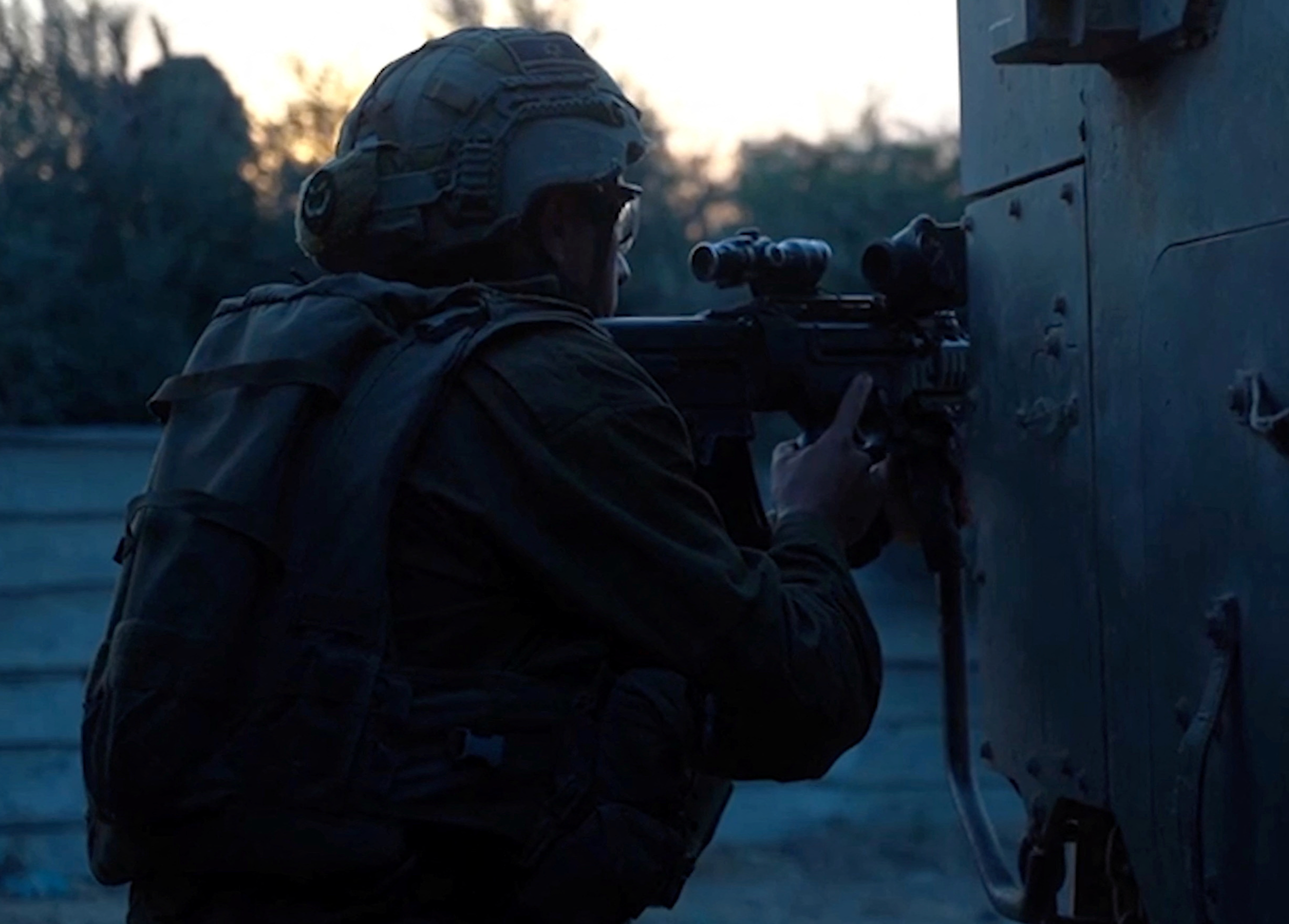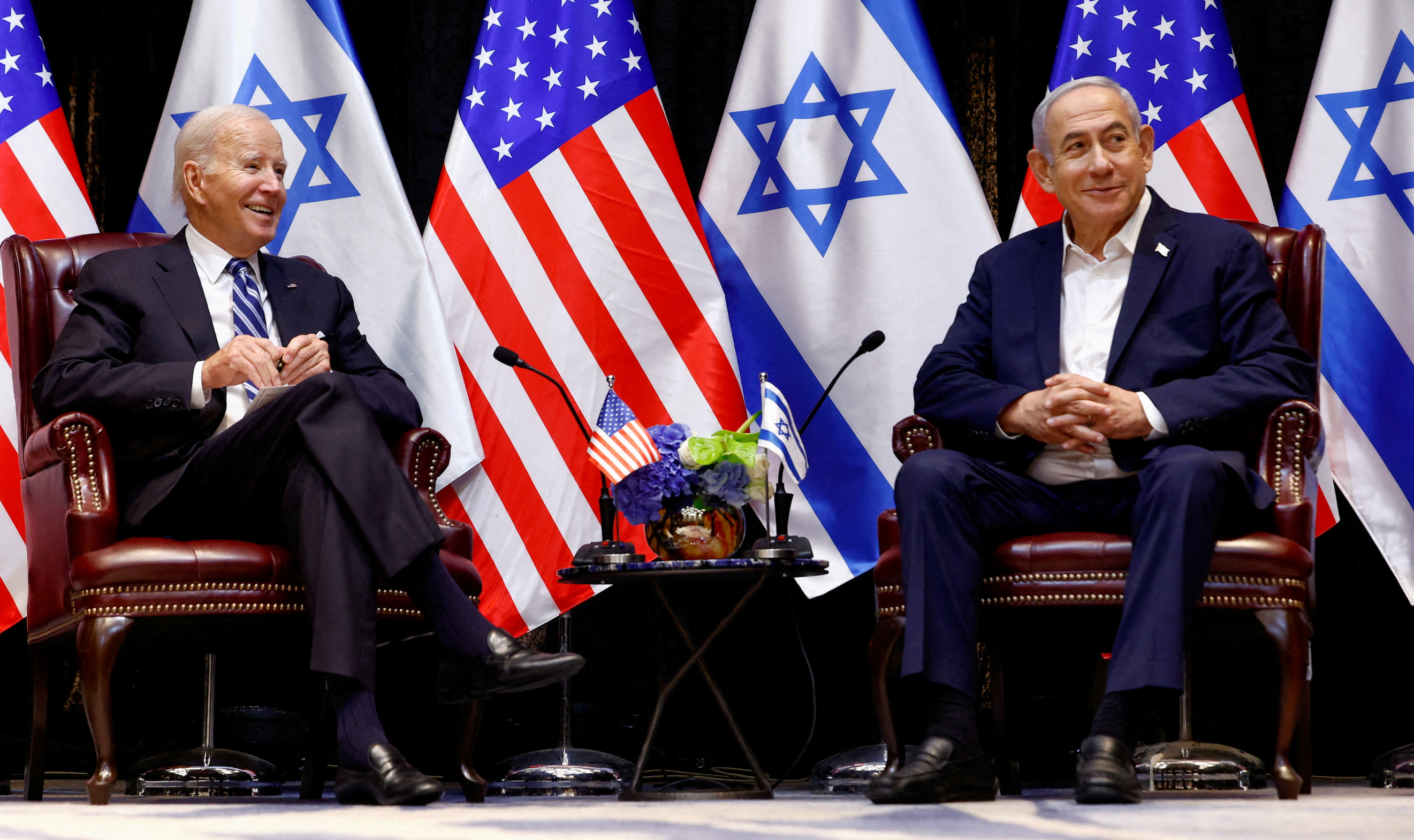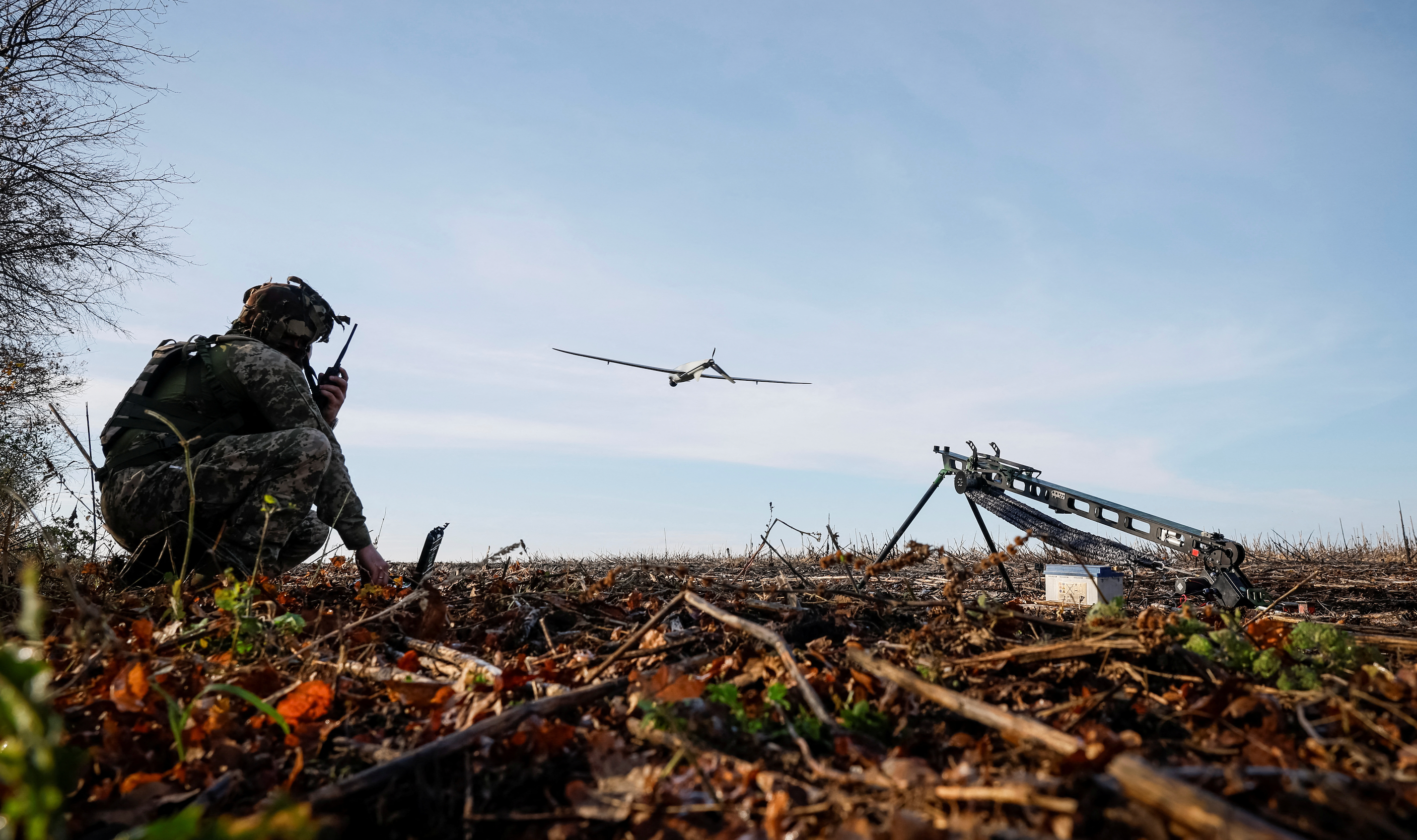
Israel says it attacked Hamas gunmen inside Gaza tunnels
PHOTO CAPTION: An Israeli soldier holds a weapon from behind a military vehicle in a location given as Gaza, as the conflict between Israel and the Palestinian Islamist group Hamas continues, in this screengrab obtained from a handout video released on October 30, 2023. Israeli Defence Forces/Handout via REUTERS
By Nidal al-Mughrabi and Emily Rose
GAZA/JERUSALEM (Reuters) -Israel said its forces fought Hamas gunmen inside the militants' vast tunnel network beneath the besieged Palestinian enclave of Gaza, seeking to free hostages and to push forward its campaign to wipe out the militant group.
As the battle inside Gaza intensified, Israeli Prime Minister Benjamin Netanyahu dismissed calls for a halt to the fighting.
But international aid officials warned that a public health catastrophe was engulfing civilians in Gaza, with hospitals struggling to cope with the casualties and food, medicine, drinking water and fuel running short.
Medics in Gaza's Indonesian Hospital said they had to set up an operating room in a corridor because the main surgical theatres were full from a sudden influx of civilian casualties from Israeli bombing early on Tuesday.
The tunnels under the cramped enclave are a prime objective for Israel as it expands its ground operations and pushes further into Gaza from the north to hit Hamas in retaliation for the Islamist group's deadly surprise attack on southern Israel three weeks ago.
Some of the 240 hostages that Israel says were seized by Hamas that day are believed to be held in the tunnel complex, adding a further complication for the Israelis on top of the difficulties of fighting in an urban setting.
"Over the last day, combined IDF (Israel Defense Forces) struck approximately 300 targets, including anti-tank missile and rocket launch posts below shafts, as well as military compounds inside underground tunnels belonging to the Hamas terrorist organization," the Israeli military said in a statement.
Militants responded with anti-tank missiles and machine gun fire, it said. A number of militants were killed, it said, without specifying a number.
Israeli forces also bombed Gaza overnight in air, sea and ground attacks, hitting northwestern areas of the enclave, which Hamas rules, witnesses said on Tuesday.
On Monday, Israeli forces had targeted Gaza's main north-south road and attacked Gaza City from two directions.
Gaza health authorities say that 8,525 people, including 3,542 children, have been killed in Israeli attacks since Oct. 7. U.N. officials say more than 1.4 million of Gaza's civilian population of about 2.3 million have been made homeless.
About 1,400 people were killed in the Hamas assault on Oct. 7, Israel says.
Reuters has been unable to independently verify casualty counts.
The al-Qassam Brigades, Hamas's armed wing, said militants clashed early on Tuesday with Israeli forces invading southern Gaza. Four vehicles were targeted with missiles, it said.
The militants also fired at two Israeli tanks and bulldozers in northwest Gaza, al-Qassam said. In Beit Hanoun, in the northeast, they "liquidated" an Israeli unit which was ambushed as it entered a building.
Reuters was unable to confirm the detials of the reports on the fighting. The Israeli military had no immediate comment on the Hamas accounts.
Air raid sirens sounded in the area of Israel's Red Sea city of Eilat on Tuesday and the Israeli military said it downed an approaching "aerial target".
There was no immediate claim of responsibility. Last week, Israel accused the Iran-aligned Houthi movement in Yemen of sending drones that caused explosions in two Egyptian towns on the Red Sea, saying they were intended to strike Israel.
The mounting death toll in Gaza has drawn calls from the United States, Israel's main ally, other countries and the U.N. for a pause in fighting to allow in more humanitarian aid.
Israel has blockaded the Gaza Strip and refuses to allow in fuel supplies, saying they could be used by Hamas for military purposes.
Netanyahu said on Monday that Israel would not agree to a cessation of hostilities and would press ahead with its plans to wipe out Hamas.
"Calls for a ceasefire are calls for Israel to surrender to Hamas, to surrender to terrorism, to surrender to barbarism. That will not happen," Netanyahu said in televised remarks.
A World Health Organization official in Geneva said on Tuesday that a "public health catastrophe" was imminent in Gaza.
CHILDREN BENEATH THE RUBBLE
Air strikes on Monday night outside the Indonesian Hospital in the northern Gaza Strip caused a power cut and doctors said they feared for the lives of 250 injured Palestinians being treated there as fuel runs low.
"Running out of fuel would mean no power and no power would mean the inevitable death of many patients," Dr. Moaeen Al-Masri said.
Footage obtained by Reuters showed Palestinians carrying bodies of victims of the Israeli offensive on a donkey cart to the Indonesian Hospital. Dozens of Palestinians walked behind the cart and around it chanting "Allahu akbar" (God is Greatest).
A spokesperson with the U.N. children's agency in Geneva, James Elder, warned of the risk of infant deaths due to dehydration. Children were getting sick from drinking salty water, he said.
About 940 children are reported missing in Gaza, he said, with some thought to be stuck beneath the rubble of buildings pulverised by Israeli air strikes.
Significantly fewer humanitarian aid trucks than needed have reached the blockaded enclave, U.N. officials said, and civil order has broken down with people storming U.N. warehouses in search of food.
That has put four U.N. aid distribution centres and a storage facility out of action, the U.N. agency for Palestinian refugees (UNRWA) said on Monday.
"It's a disaster on top of a disaster," WHO regional emergencies chief Rick Brennan said, reiterating international calls for a ceasefire to enable a larger humanitarian operation.
Aid trucks have been trickling into Gaza from Egypt over the past week via Rafah, the main crossing that does not border Israel. It has become the main point of aid delivery since Israel imposed a total siege of Gaza after Oct. 7.
The U.N.'s Office for the Coordination of Humanitarian Affairs said 26 trucks entered the Rafah crossing on Monday. Before the conflict, an average of about 450 aid trucks were arriving daily in Gaza.
(Reporting by Nidal al-Mughrabi, Yomna Ehab, Ali Swafta, James Mackenzie, Henriette Chacar, Dan Williams, Emma Farge and Jonathan Landay; Writing by Steven Coates and Nick Macfie; Editing by Simon Cameron-Moore and Angus MacSwan)









